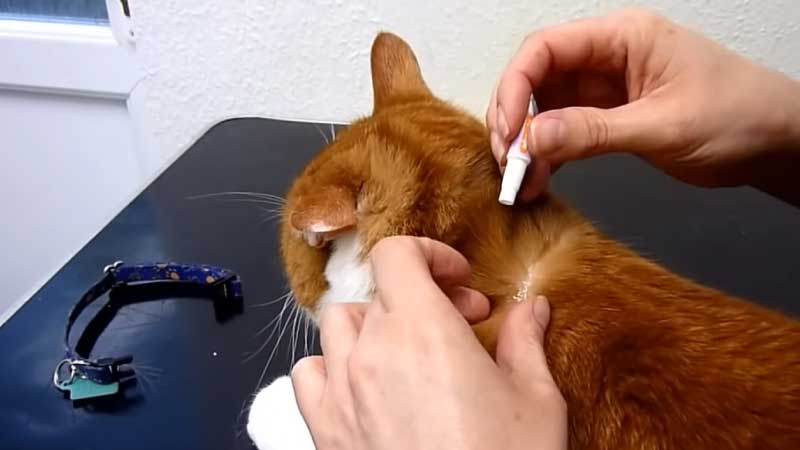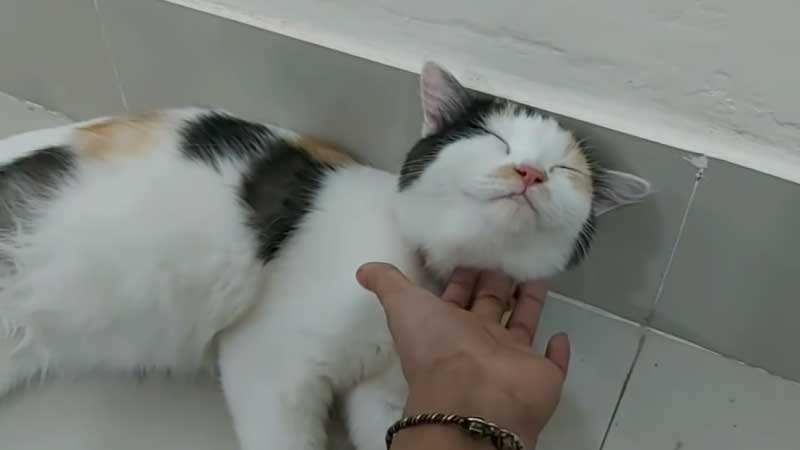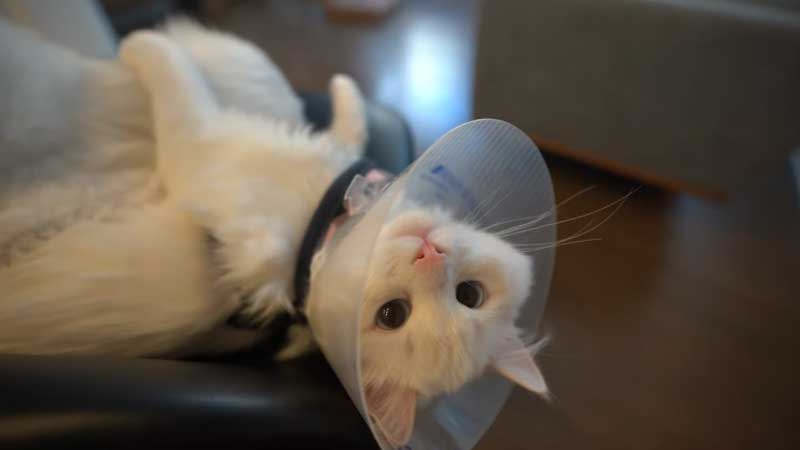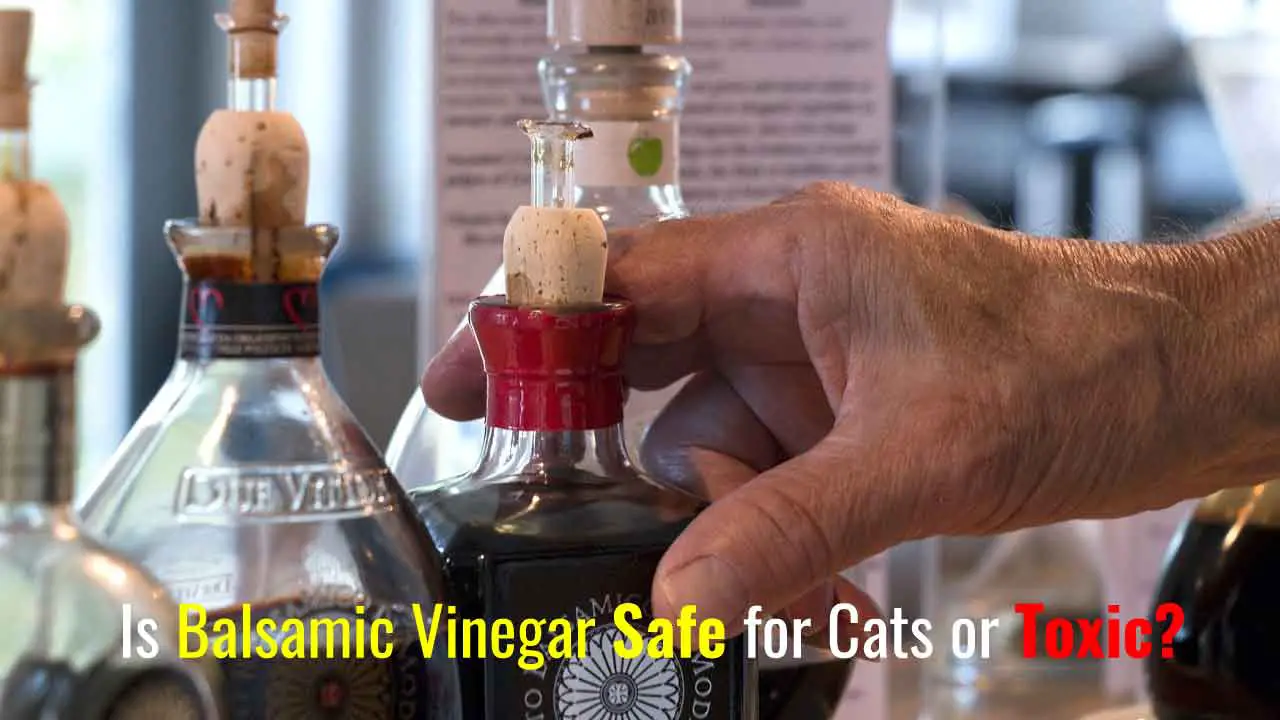Oops! So you’ve accidentally gave cat double dose of Flea Medicine, and now you’re frantically searching the internet for answers? Don’t fret!
First and foremost, while it’s crucial to always follow the recommended dosage, many cats will be just fine after a mishap. However, monitoring them for any unusual signs is key.
In this comprehensive guide, we’ll walk you through the potential effects, symptoms to watch out for, and steps you should take next. Dive in below for a detailed exploration, and remember: every cat owner makes a mistake now and then—it’s how we respond that counts.
Table of Contents
What Happens If You Double Dose Flea Medicine to Cats?

Every cat parent wants what’s best for their furry family member, and sometimes, in our determination to ensure they’re protected from annoying parasites, mistakes occur. If you’ve doubled up on your cat’s flea medicine, you might feel guilt and worry. So, let’s break down what happens when you over-administer:
- Immediate Effects on the Body: The exact response can vary based on the type of flea medicine you’re using. Some ingredients might cause a rapid onset of symptoms, while others may not be immediately noticeable. Common reactions can include drooling, tremors, or lethargy.
- Internal Impact: A double dose can impact your cat’s nervous system. Flea medications target the nervous systems of pests, but in larger doses, they might affect your cat similarly. This can result in symptoms ranging from mild twitching to more severe seizures.
- Skin Reactions: Since many cat flea treatments are topical, an overdose can irritate the skin. You might notice redness, itchiness, or even swelling at the application site.
- Long-term Concerns: While many cats will recover with immediate and appropriate care, there’s always a concern about the long-term effects of an overdose. In rare cases, repeated or significant overdosing can lead to lasting neurological issues or organ damage.
The key is to act quickly, monitor your cat, and consult a vet if you’re worried. Remember, accidents happen. By being informed and prepared, you can ensure the best outcome for your beloved pet.
You may also like: How to Treat Cat Mouth Black Fungus.
Accidentally Gave Cat Double Dose of Flea Medicine: Timeline of Overdose Symptoms
Monitoring your cat’s health after an accidental overdose is essential. Here’s a hypothetical timeline charting when various symptoms might manifest. This general guide can vary based on the type of flea medicine and your cat’s health.
| Time After Overdose | Potential Symptoms |
|---|---|
| First 30 minutes to 1 hour | – Initial signs of skin irritation (for topical treatments): redness, itchiness. – Excessive salivation or drooling. – Mild behavioral changes: slight agitation or drowsiness. |
| 1 to 4 hours | – Increased agitation or lethargy. – Tremors or shaking.Vomiting or diarrhea. – Noticeable ataxia or uncoordinated movements. |
| 4 to 12 hours | – Continued or escalating gastrointestinal symptoms: frequent vomiting or diarrhea. – Labored breathing. – Extreme lethargy or difficulty rousing. – Persistent tremors or potential seizures. |
| 12 to 24 hours | – Possible increase in thirst and urination. – Swelling at the application site (for topical treatments). – Dilated pupils or changes in eye appearance. |
| 24 hours and beyond | Potential long-term or lingering symptoms. If any symptoms persist beyond this timeframe, it’s crucial to maintain communication with your veterinarian. |
Remember, each cat is unique, and reactions can vary based on age, health, and the flea medication used. Recognizing these symptoms is the first step, but action is crucial. If you notice any of these signs, it’s essential to consult with your vet immediately. They can guide you on the best course of action, which might include at-home care or an emergency visit.
First Aid and Immediate Response After Accidentally Gave Cat Double Dose of Flea Medicine

Realizing you’ve accidentally given your cat a double dose of flea medicine can be stressful. But taking immediate action can make a difference. Here’s a guide to first aid measures and how to respond promptly:
Step 1: Remain Calm
Panicking won’t help the situation and may stress out your cat further. Take deep breaths, stay calm, and think clearly.
Step 2: Remove Excess Medicine (For Topical Treatments)
If you’ve applied too much topical treatment, use a damp cloth to gently wipe away as much excess product as possible from the applied site.
Step 3: Do NOT Induce Vomiting
Unless specifically instructed by a vet, never try to make your cat vomit. This can cause additional complications.
Step 4: Monitor for Symptoms
Keep a close eye on your cat for any signs of distress or overdose symptoms, as detailed in the previous sections.
Step 5: Call Your Vet Immediately
Even if your cat seems fine, it’s always a good idea to notify your vet about the situation. They can provide guidance on any additional steps you should take.
Step 6: Accessible Information
When speaking to your vet or if you have to visit an emergency clinic, have the flea medicine packaging on hand. It’s essential for medical professionals to know the exact product and its ingredients.
Step 7: Keep Your Cat Hydrated
Ensure your cat has access to fresh water. This helps flush out any ingested toxins and keeps them hydrated, especially if they experience vomiting or diarrhea.
Step 8: Separate from Other Pets
If you have other pets, keep the affected cat separate. This prevents any potential grooming or licking of the medicine by other animals.
Step 9: Note the Time
Document when you applied the medication and when you noticed any symptoms. This timeline can be invaluable for veterinarians.
Step 10: Stay with Your Cat
It’s important to keep a close eye on your feline friend and offer comfort. Your presence can be reassuring during a stressful time.
Read More: Can You Give a Cat Benadryl
Avoiding Future Gave Double Dose of Flea Medicine: Preventative Measures

Accidents happen, but when it comes to our furry companions, prevention is always better than cure. Here’s how to ensure that an overdose mistake doesn’t occur again in the future:
Read Instructions Carefully
Always thoroughly read and follow the manufacturer’s guidelines for any medication or treatment. If you’re unsure about anything, consult your veterinarian.
Use the Right Dosage
Ensure you’re using the correct dosage for your cat’s weight and age. Using a small scale to weigh your cat regularly can help in administering accurate doses.
Implement a Tracking System
Use calendars, reminders, or specialized pet care apps to track when you’ve given your cat medication, ensuring doses aren’t given too close together.
Store Medications Safely
Keep all medications, including flea treatments, in a secure location out of reach of pets and children. Consider using a dedicated container or cabinet.
Double-Check Product Labels
If you have multiple pets with different medication needs, always double-check labels to ensure you’re using the right product for the right pet.
Educate All Caregivers
Ensure everyone involved in your cat’s care is aware of medication schedules, dosages, and the importance of not double-dosing.
Use Consistent Application Sites
Always apply topical treatments in the same location, making it easier to spot if a dose has already been given.
Seek Vet Recommendations:
Always consult with your veterinarian before starting a new treatment. They can provide recommendations tailored to your cat’s specific needs.
Frequently Asked Questions (FAQs)
How soon will I notice symptoms if I accidentally give my cat a double dose of flea medicine?
Symptoms can appear within 30 minutes to several hours. It varies based on the cat’s physiology and the specific medication used. Always monitor your cat closely after realizing an overdose.
Are all flea medicines equally toxic in overdose situations?
No, the toxicity varies depending on the active ingredients. Some medications might be more potent than others. Always consult the product label and your veterinarian for specifics.
Is giving my cat another flea treatment after an overdose incident safe?
It’s crucial to consult with your veterinarian before administering any further treatments. They will guide you through the appropriate waiting period and any necessary precautions.
What should I do if I can’t reach my regular vet after an accidental overdose?
If your regular vet is unavailable, seek an emergency veterinary clinic or a 24-hour pet poison hotline. Immediate consultation is crucial.
Can my other pets be affected if they come into contact with a cat overdosed on topical flea treatment?
Yes, especially if they groom or lick the treated cat. Separating the affected cat from other pets is best to prevent cross-contamination.
How long will it take for my cat to fully recover after an overdose?
Recovery times vary based on the severity of the overdose and the specific medication involved. Some cats might recover within 24 hours, while others require several days or weeks. Always follow up with your veterinarian.
Are there any natural alternatives to chemical flea treatments?
There are some natural flea control methods, such as diatomaceous earth or herbal sprays. However, their efficacy can vary, and it’s essential to ensure they’re safe for cats. Consult your veterinarian before making any changes.
Will an overdose have long-term effects on my cat’s health?
While many cats recover fully from an overdose with no lasting effects, there can be cases where long-term issues arise, especially if the overdose is severe. Regular veterinary check-ups are essential.
Final Verdict
Accidentally gave cat double dose of Flea medicine is a situation that many pet owners fear, and for good reason. While beneficial for combating pesky parasites, Flea treatments contain potent ingredients that can have adverse effects when administered improperly.
The immediate consequences of realizing such an error can be trouble-inducing. However, being informed about the potential symptoms, understanding immediate first aid measures, and knowing the steps for long-term monitoring can significantly affect your feline friend’s outcome.
Prevention remains the best approach. Through careful administration, tracking, and storage of flea medications, as well as educating all involved in your cat’s care, such mistakes can be minimized or avoided altogether. Yet, should they occur, swift action and consultation with veterinary professionals are paramount.




